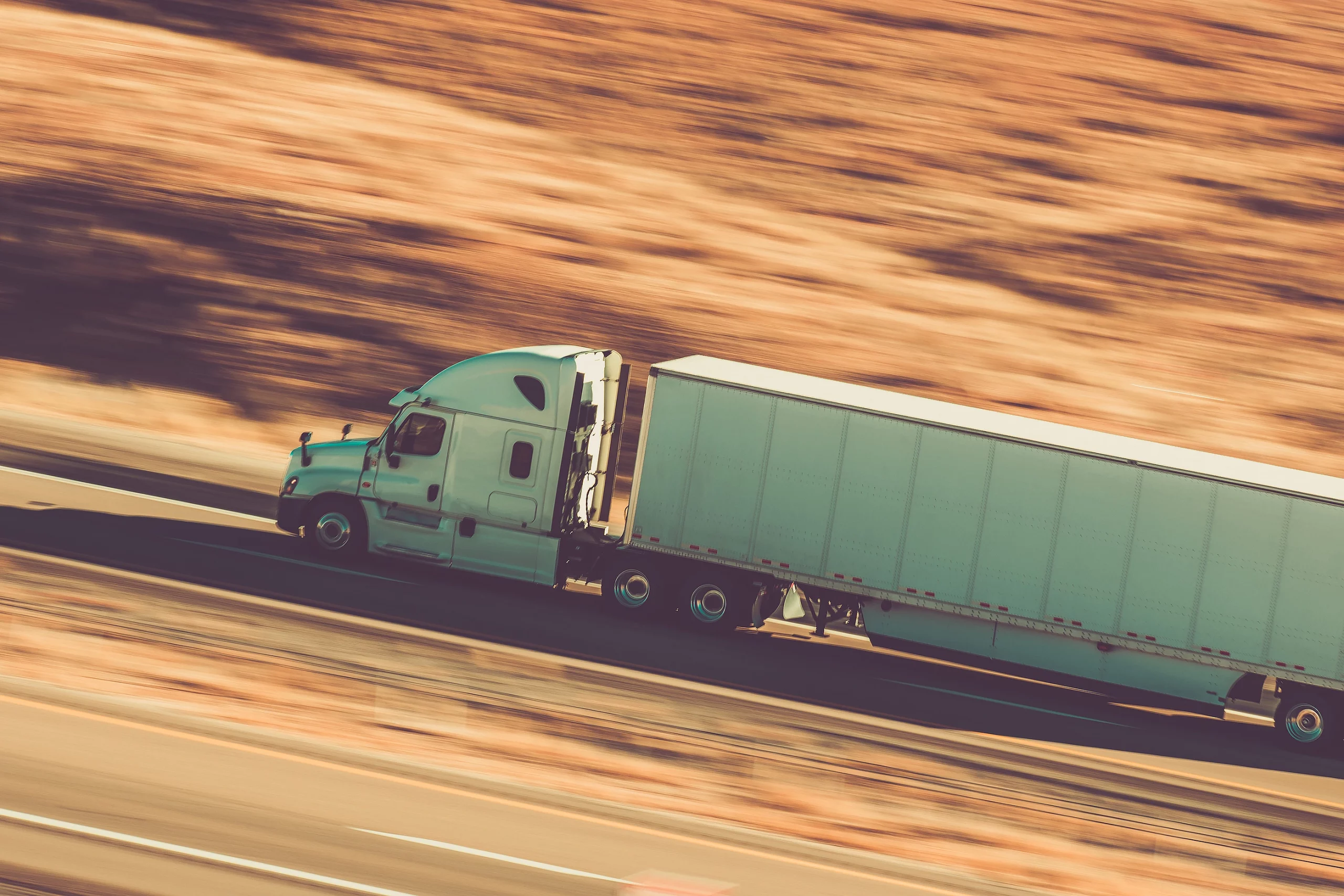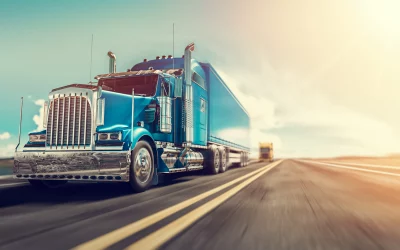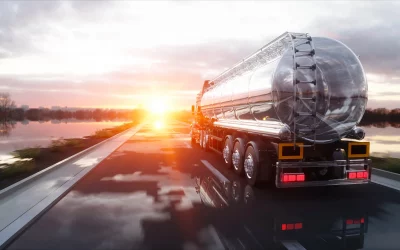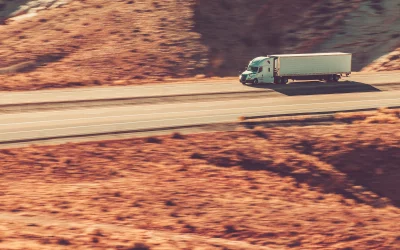Top Rated Denver Truck Accident Lawyers
Should You Worry About Self-Driving Trucks?
The introduction of self-driving car technology has already caused a stir due to the numerous solutions it could provide and all of the potential issues it could cause.
As a new technology, precedents and laws must be established.
Because the applications of such technology appear to be endless, a seemingly endless range of personal injury and safety concerns arise from its proposed applications in the extremely dangerous field of commercial trucks.
You’d like to know who’ll be driving the truck.
Mercedes has always been a leader in car safety features that incorporate technology, and the new truck is no exception.
The truck giant is known for its innovative LED lighting and aerodynamic design, but the new radar and camera systems that assist the truck driver on the open road are new.
Mercedes insists on having a human in the driver’s seat. And has never marketed its automated driving system as a substitute for human drivers.
The new system’s goal is to increase fuel efficiency and driver safety by assisting, rather than replacing, operators with robotics. The driver is not permitted to sleep or leave the driver’s seat for any reason while the truck is operating.
The goal of the system, according to Mercedes, is to empower drivers and enable them to perform office-like tasks, such as entering data into a computer system while driving safely on the highways.
Of course, even if implemented by 2025 as the automaker anticipates, the cost of such a system could be prohibitively expensive, rendering the entire debate over driver safety moot. Because trucking companies are often in the business of lowering costs rather than raising them, the chances of any company paying a large sum of money for what amounts to luxury rather than a necessity are slim.
Aspects of Robotic Driving That Involve Personal Injury
When Google unveiled its driverless cars, the first concern was safety. Is it possible for children or the disabled to operate self-driving cars without the assistance of others? In the event of a fatal self-driving car accident, who would be held accountable? Because these cars are not yet common on the road, there are no clear answers to these questions. However, by 2040, they will be.
Three out of every four cars will be driverless, according to estimates. Personal injury aspects of robotic driving must bead dressed at some point in the future.
If the personal injury aspect of robotics is anything like other areas of the law, the car’s owner will be held liable, even if he or she is not driving at the time.
If a collision occurs with a robotic car, computer technology may help determine who is at fault. Before a crash and other information that helps crash analysts determine fault, cars’ “black boxes” record speed and stopping time.
The Advantages of Self-Driving Trucks Automatic Technology Innovations
While the Federal Motor Carrier Safety Administration works to achieve widespread adoption of automatic emergency braking for commercial vehicles, other companies are working to innovate truck safety in a new way: completely self-driving cars.
Star sky Robotics is one of the pioneering companies in this field. They began publicly testing driverless trucks on closed roads in 2018 and then on highways last summer, founded in 2016 as an autonomous truck company.
The accomplishments of the first company to put an autonomous truck on the road without a driver in the cab have been hailed by industry professionals and global tech firms alike as a major milestone.
Even though the company has since closed, the push for self-driving trucks continues. Not only has Starsky Robotics been working to revolutionize the trucking industry. Waymo, Daimler, Aurora, Embark Trucks, and TuSimple are companies working to make self-driving trucks a reality.
TuSimple, based in San Diego, is making significant progress in self-driving truck technology. TuSimple announced this summer that they are developing and deploying an autonomous truck network.
Hillwood recently announced that TuSimple is building a logistics hub at Alliance Colorado Mobility Innovation Zone. They plan to launch the technology in Colorado and connect it to their autonomous freight network, which currently spans from Dallas to Arizona.
Their trucks currently drive themselves, but they still have a “safety driver” and a test engineer in the cab to keep an eye on them. They hope to remove the human element from their trucks once the hub is completed in March 2021, allowing for completely driverless transport.
Autonomous Trucks’ Potential Impact
According to the American Trucking Association, there are over 3.5 million commercial motor car drivers in the United States, with an additional 8.7 million people employed in the freight industry as a whole.
The elimination of the need for drivers could significantly impact the big rig industry. According to proponents of the industry, autonomous trucks could be a huge risk-mitigation tool for other drivers. Thousands of crashes involving trucks and 18-wheelers occur each year, resulting in numerous fatalities and injuries.
Advocates for the self-driving truck industry argue that automating the process would greatly reduce risk because autonomous trucks would travel more easily during off-peak hours and would not have to struggle to find parking. They also don’t get tired like humans, which could help prevent truck accidents caused by tired, drunk, or distracted driving.
On the other hand, Truck drivers argue that driverless commercial motor cars bring with them a great deal of unnecessary risk.
Linda Allen, a truck driver for over ten years and a board member of the Owner-Operator Independent Drivers Association (OOIDA), noted that autonomous trucks might not anticipate a variety of situations, which could be dangerous to other motorists.
She told CBS that she recently came across a bad accident while driving her truck and that a police officer had come out to direct traffic.
Drivers like Linda are unsure how a self-driving semi-truck would handle situations that the AI component cannot predict or adapt to, such as cargo issues, law enforcement, and emergencies; there is concern that removing the human element from behind the wheel could lead to more 18-wheeler accidents in these situations.
According to safety experts, these companies are currently testing their driverless trucks on populated roads.
Another OOIDA spokesperson, Norita Taylor, expressed concern that “federal regulators will put on blinders and push for more technology as the solution to the industry’s problems without considering the negative impacts” that these technologies could have on the public.
In addition, these corporations still have a lot of questions to answer.
Because the technology is so new, much of it is proprietary; as a result, companies are hesitant to share their findings until they have figured out how to make it work.
Because of their aversion to sharing data, these companies are forced to test their self-driving cars on public roads alongside other drivers.
A serious truck accident or even death could result if the technology fails, similar to the infamous self-driving Uber case from several years ago.
In an interview, executives from TuSimplified said they are not required by law to notify nearby residents when they plan to test these big rigs or share data with any state department of transportation. There is no formal inspection process with the Colorado Department of Transportation.
Truck drivers are also concerned about job prospects.
While eliminating drivers would greatly reduce the time it takes to drive cross-country and, in turn, labor costs for any of these companies, financial experts predict that the rise of autonomous trucking will upend the economy, displacing hundreds of thousands of drivers.
It would almost certainly harm all industries that rely on trucking to make a living, such as rest-stop employees, gas station owners, and other related businesses. The push for self-driving trucks is still going strong. While it’s impossible to predict when self-driving trucks will take over the roads, one thing is certain: they’re coming.
No Human Error
The most obvious advantage is that automating a truck eliminates several major factors contributing to truck accidents.
Because there is no human driver onboard an automated commercial truck, there is no risk of fatigue, intoxication, distraction, road rage, or human error.
Truck accidents could be drastically reduced as a result of this.
Self-driving trucks are expected to drive more cautiously than human truck drivers. They would avoid any potentially dangerous maneuvers and would be much more consistent in maintaining their speed and position in traffic.
Technology for sensors
A sensor system will eliminate the risks of nighttime visibility for truck drivers and will be able to detect things that a human driver cannot. Debris, accidents, and other road hazards could be avoided if this technology is combined with computer speed reaction time.
The navigation system should reduce the length of a route by utilizing real-time traffic and accident updates and mapping out the shortest route possible.
Accident Resolution
It will be much easier to determine who is to blame because all required is a memory diagnostic of the self-driving system to see what actions were taken and when. The truck’s training will not be evaluated, it will not be tested for alcohol, and it will not be able to lie.
More Space Without Human Driver
Instead of a cab for a human passenger, a self-driving truck will house its computer system in a much smaller space.
This means the basic truck design we’ve seen for nearly a century will change, hopefully for the better.
Perhaps the massive sledgehammer of a truck cab could be reduced, with more safety features, to take the place of human operators.
Self-driving Trucks: Potential Issues
Despite the numerous advantages that self-driving trucks could provide, there will inevitably be some drawbacks to their use.
Self-driving trucks
Must be impregnable.
One of the most obvious challenges that a self-driving truck, or any self-driving technology, would face is safety.
With recent concerns about self-driving car accidents, self-driving trucks would have to deal with even more caution in their implementation, given how they can potentially cause far more damage than a standard passenger car.
Recently, a pedestrian was struck by an Uber car because the self-driving software was miscalibrated, causing the feature that ignored harmless oncoming obstacles such as plastic bags and small road debris to be turned on too high, causing the car to miss the pedestrian and hit the pedestrian at full speed.
This could only be the tip of the iceberg, resulting in disaster for a self-driving truck in terms of software bugs and hiccups.
Just because a person isn’t actively driving a truck doesn’t mean they can’t be held accountable for its performance.
In the case of the self-driving Uber that killed a pedestrian, the person in charge of calibrating the software that caused the pedestrian’s death is responsible because their error caused the accident.
The same can be said about any human error that jeopardizes the car’s ability to complete its tasks without causing harm to anything or anyone.
This can include everything from software development to car maintenance.
Human Intuition is lacking in a self-driving truck.
While many aspects of a self-driving commercial truck may be advantageous, the truck’s lack of human Intuition, which allows us to detect, analyze, and adapt to situations, is a significant drawback.
For example, a self-driving truck is driving down a quiet highway when two cars appear on either side and box it in to slow it down to a stop. Several men emerge from the cars and smash open the truck trailer doors, stealing the contents and the more valuable truck parts.
There is nothing the truck can do. It detects cars in front and behind it that are too close for it to maneuver around, trapping it due to its robotic logic, which prevents it from making any collisions regardless of the situation. Perhaps a weight sensor or cameras will alert authorities to theft, but thieves can circumvent such contingencies with proper precautions.
Self-driving Truck Liability
We can assume that if a self-driving truck causes an accident, the company that owns the truck will be covered by insurance and handle any personal injury lawsuits brought against them.
We can’t assume that we’ve thought of every scenario and precedent that could arise as a result of this technology’s implementation.
In some cases, the truck’s owners may be held liable for negligence—developers of faulty software or manufacturers of a sensor are at fault, perhaps in another. Speculation is difficult because there are so many unknowns, and the book is still being written.
In an accident involving an autonomous car, who bears liability?
While these cars will inevitably reduce the number of accidents on the road, accidents will not go away completely once autonomous cars become commonplace. Self-driving cars will collide with each other and even pedestrians, as was the case with Elaine Herzberg, who was struck and killed by one. When Herzberg stepped off the median and into the path of a car traveling at 38 mph, she was hit and killed. Officers’ initial investigation revealed
The likelihood that Herzberg was at fault, but the fact remains that she was struck down by a driverless car, leaving no one to assume liability.
In an accident with two humans, vehicular negligence can typically be determined. However, when you remove humans from behind the wheel, who then will be at fault in the event of an accident? Was manufacturing error the cause of Herzberg’s untimely demise? Odessa’s car accident lawyer can help you answer these questions and more.
Contact an experienced truck accident attorney.
If you or a loved one have been involved in an accident with a commercial truck, then do not hesitate to contact Warrior Trucking Accident Attorneys about meeting for a free consultation about your possible personal injury claim. Our skilled lawyers have years of experience ensuring that clients receive the settlements they deserve from those responsible for damages.
Warrior Car Accident Lawyers
1902 W. Colorado Ave., Suite 100
Colorado Springs, CO 80904







